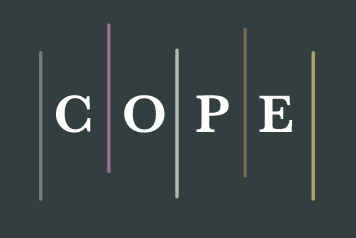Retraction and Corrections Policies
Retraction and Corrections Policies
Maqolat: Journal of Islamic Studies is committed to upholding the highest standards of academic integrity, ensuring that all published articles are reliable, accurate, and free from misconduct. In cases where errors, ethical violations, or other issues are identified in a published article, the journal will follow a comprehensive retraction, withdrawal, and correction process under the guidelines established by the Committee on Publication Ethics (COPE).
Retraction Policy
Maqolat: Journal of Islamic Studies will consider retracting an article under the following circumstances:
Fabrication, Falsification, or Misleading Data: If an article is found to have fabricated or falsified data or contains errors that cannot be corrected through a simple correction, a retraction will be initiated.
Plagiarism: If an article is discovered to have plagiarised content, whether from other sources or within the same manuscript.
Duplicate Publication: If the article has been published elsewhere without proper disclosure or permission.
Unethical Research: If the research reported violates ethical standards, such as the use of data without consent or research conducted without appropriate ethical approval.
Conflicts of Interest: If the author(s) failed to disclose a major competing interest that, in the editor's view, could have unduly influenced the interpretation of the findings.
In the case of retraction, the following steps will be taken:
A retraction notice will be published on the article’s page, clearly identifying the article as retracted and stating the reason(s) for retraction.
A retraction watermark will be added to the article PDF, indicating that it has been retracted.
The HTML version of the article will be removed or replaced with a retraction notice.
The retraction notice will be linked to the original article wherever possible.
Retraction notices will be published promptly and made freely available to all readers.
Article Withdrawal Policy
An article may be withdrawn before publication if any of the following issues arise:
Author's Request: Authors may request the withdrawal of their article at any stage of the process. However, if the manuscript has already undergone significant editorial or peer review work, the author will be required to pay a fee of IDR 100,000 to cover the journal's costs.
Scientific Misconduct or Errors: If it becomes evident that the article contains significant errors or is a result of unethical research practices (e.g., self-plagiarism, fraudulent data), the article may be withdrawn by the editorial board.
Infringement of Ethical Guidelines: Articles may be withdrawn due to violations such as double submissions, false claims of authorship, or plagiarism.
Withdrawn articles will be flagged as such, with a note explaining the reason for withdrawal, and included in the journal's records.
Correction Policy
Maqolat: Journal of Islamic Studies will issue a correction if:
Minor Errors: If a published article contains minor errors that do not affect the overall findings but may mislead the reader (e.g., typographical errors, incorrect references).
Authorship Issues: If there is a mistake in the authorship list, such as omitting a deserving author or incorrectly including someone who did not meet authorship criteria.
Data or Methodology Updates: If there is a need to update data, methodology, or any other part of the article to reflect a more accurate account.
Corrections will be published as an erratum, and the corrected version of the article will be updated in both the HTML and PDF formats. The correction notice will clearly indicate the part of the article that has been corrected.
Post-Publication Ethics and Dispute Resolution
Suppose an author, reviewer, or any party involved in the publication process has concerns regarding an article’s retraction, withdr…





















